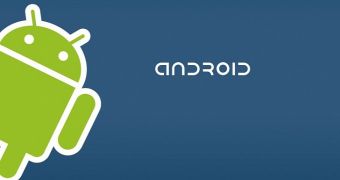Microsoft is no longer just the world's number one software maker, but also a company that's deeply involved in the hardware industry, building several tablet models based on the same Windows operating system and supposed to compete against similar devices from Apple, Samsung and others.
Since it now tries to explore some new markets, as Microsoft has been focused for years just on software, it's only natural to expect the Redmond-based giant to face new challenges, as rivals in these sectors are already offering competitive products that are easily getting the lion's share as far as sales are concerned.
Back in October 2012, when it unveiled the first Surface tablet, Microsoft was directly thrown in a battle against Android and iOS and nobody gave Redmond a chance to succeed. More than one and a half years have passed since then and Microsoft is slowly gaining market share, although everybody expected the company to do a lot better in the tablet industry after so many months and models released.
The software giant however has adopted a completely new strategy recently and it might be doing the right thing.
Microsoft first and foremost needs to crush Android because of two directly connected things.
First of all, Android is one of the best-selling platforms in the tablet industry, so if it wants to Surface models to be more successful, Microsoft clearly needs to compete directly with Android.
Second of all, Android is quickly expanding into the laptop market, an industry sector that Microsoft has been leading for years, so unless it does something to slow down Android's impressively fast growth, Redmond might again lose some users in this area as well.
But Microsoft's new administration team, with CEO Satya Nadella and Bill Gates behind every important decision, has put together a plan that is as simple as it could be: compete with Android directly in the tablet market and offer users the exact thing that this platform excels at: a low price.
It's not a secret that Android devices pricing could go down to just a few dollars, so it's no surprise that so many people have actually bought such a tablet until now.
And that's exactly what Microsoft is trying to do right now: offer very cheap Windows tablets that would clearly take on Android and reduce its market share.
Judging by the operating system perspective, Windows is superior to Android, regardless of whether we're talking about Windows RT or Windows 8 Pro.
While it doesn't have the same rich app repository, Windows offers enhanced productivity, comes with a full version of Office (in the case of Windows RT), and above all, has a desktop that's 99 percent similar to the one we've all worked on when using a laptop or a PC. With the right accessories, a Windows tablet could turn into a small laptop that helps you get things done much faster, while also boasting features that you don't get on other platforms, such as multitasking.
Android also has its very own advantages, but there's no doubt that in a head-to-head comparison, Windows has what it takes to win the fight.
So since Windows already has what it takes to defeat Android, Microsoft seems to be ready to make the move to the next level and bring to the market several affordable devices.
The company has recently developed a brand new Windows 8.1 SKU that comes with Bing as the default search engine in Internet Explorer. This particular OS version is being offered free of charge to manufacturers, and while OEMs cannot change the search engine, users can, Microsoft guaranteed. This means that device makers can now build cheaper devices, since licensing costs are no longer involved, and users are provided with the same functionality and options as in the full version of Windows 8.1.
Installing Windows 8.1 with Bing on a new tablet makes it a lot more affordable than you'd expect. How affordable? Microsoft says that “you'll be surprised.”
It appears that Microsoft is working with partners to release tablets that cost between $100 (73 euros) and $200 (150 euros), obviously running Windows 8.1 with Bing and coming with a somewhat limited hardware power. The hardware however will be optimized to run Windows 8.1, so the experience should be almost the same as with a more advanced tablet.
The Computex show already brought us the first such surprise. A Chinese (yes, Chinese) manufacturer called Emdoor rolled out a tablet running Windows 8.1 that costs only $100 and comes with decent hardware. Among its specs, it's worth mentioning a resolution of 1280x800 px, a quad-core Intel Atom Z3735E processor (Bay Trail), 1 GB of RAM and 16 GB of internal storage. CPU speeds are again acceptable: normal speeds of 1.33 GHz and 1.83 GHz in turbo mode.
Microsoft itself isn't quite willing to develop affordable tablets and living proof is the recently launched Surface Pro 3 model that costs no less than $2,000 (1,500 euros) in the top configuration. But the company is however doing the right thing and seems to be playing its cards right.
The power of Microsoft remains the Windows ecosystem and even though the company might continue to focus on expensive devices, partners are always there to help.

 14 DAY TRIAL //
14 DAY TRIAL //